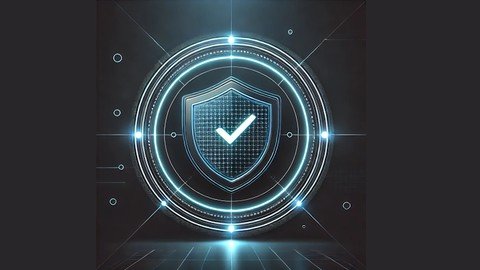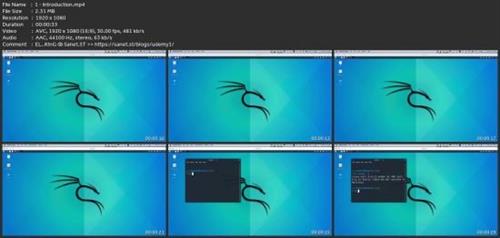- Thread Starter
- #1
Linux Incident Response Basics

What you'll learn
Utilize journalctl to effectively analyze and interpret system logs during incident response.
Implement techniques to block suspicious IP addresses and mitigate threats using command-line tools.
Manage and investigate active processes to identify and neutralize malicious activities.
Perform forensic analysis on compromised systems and document findings for comprehensive incident reporting.
Requirements
Basic understanding of Linux operating systems and command-line interfaces.
Familiarity with system administration concepts is beneficial but not mandatory.
Description
In the realm of cybersecurity, swift and effective incident response is crucial. Our Command Line Incident Response course empowers you with the command-line skills necessary to manage and mitigate security incidents efficiently. Ideal for aspiring cybersecurity professionals, IT administrators, security analysts, and Linux enthusiasts, this course provides the tools and knowledge to respond to incidents with precision.What You'll Learn:System Log Analysis: Utilize journalctl to analyze and interpret system logs, uncovering critical information during incidents.Threat Mitigation: Implement techniques to block suspicious IP addresses and mitigate potential threats using command-line tools.Process Management: Investigate and manage active processes to identify and neutralize malicious activities swiftly.Forensic Analysis: Conduct comprehensive forensic analyses on compromised systems and document your findings for thorough incident reporting.Course Features:Interactive Modules: Engage with detailed video lessons that break down complex concepts into manageable steps.Practical Exercises: Apply your skills in hands-on labs that simulate real-world incident scenarios, enhancing your problem-solving abilities.Expert Guidance: Learn from industry professionals who provide actionable insights and best practices in incident response.Who Should Enroll:Aspiring Cybersecurity Professionals: Build a robust foundation in incident response and system forensics to advance your career.IT Administrators: Strengthen your ability to handle and resolve security incidents on Linux servers effectively.Security Analysts: Enhance your proficiency in using command-line tools and techniques for efficient incident management.Linux Enthusiasts: Develop advanced security and forensic skills to protect and analyze Linux environments.Equip yourself with the command-line expertise needed to respond to cybersecurity incidents decisively. Enroll in Command Line Incident Response today and elevate your incident management capabilities!
Overview
Section 1: Introduction
Lecture 1 Introduction
Section 2: Setup Lab
Lecture 2 Introduction
Lecture 3 What is Kali Linux?
Lecture 4 What is Virtualization?
Lecture 5 Setup Kali VM
Section 3: Investigating Linux
Lecture 6 Scanning Logs
Lecture 7 Recap: Scanning Logs
Lecture 8 Block Suspicious IP addresses
Lecture 9 Recap: Block Suspicious IP addresses
Lecture 10 Investigate Processes
Lecture 11 Recap: Investigate Processes
Lecture 12 Forensic Analysis
Lecture 13 Recap: Forensic Analysis
Lecture 14 Demo of Incident
Lecture 15 Documenting Incident
Aspiring cybersecurity professionals seeking skills in incident response and system forensics.,IT administrators managing Linux servers who want to enhance their incident handling capabilities.,Linux enthusiasts and system administrators interested in developing advanced security and forensic skills.

Say "Thank You"
rapidgator.net:
nitroflare.com:
ddownload.com:

Published 11/2024
MP4 | Video: h264, 1920x1080 | Audio: AAC, 44.1 KHz
Language: English | Size: 217.23 MB | Duration: 0h 42m
Learn Practical Linux Command Line Tools for Fast Incident Handling
MP4 | Video: h264, 1920x1080 | Audio: AAC, 44.1 KHz
Language: English | Size: 217.23 MB | Duration: 0h 42m
Learn Practical Linux Command Line Tools for Fast Incident Handling
What you'll learn
Utilize journalctl to effectively analyze and interpret system logs during incident response.
Implement techniques to block suspicious IP addresses and mitigate threats using command-line tools.
Manage and investigate active processes to identify and neutralize malicious activities.
Perform forensic analysis on compromised systems and document findings for comprehensive incident reporting.
Requirements
Basic understanding of Linux operating systems and command-line interfaces.
Familiarity with system administration concepts is beneficial but not mandatory.
Description
In the realm of cybersecurity, swift and effective incident response is crucial. Our Command Line Incident Response course empowers you with the command-line skills necessary to manage and mitigate security incidents efficiently. Ideal for aspiring cybersecurity professionals, IT administrators, security analysts, and Linux enthusiasts, this course provides the tools and knowledge to respond to incidents with precision.What You'll Learn:System Log Analysis: Utilize journalctl to analyze and interpret system logs, uncovering critical information during incidents.Threat Mitigation: Implement techniques to block suspicious IP addresses and mitigate potential threats using command-line tools.Process Management: Investigate and manage active processes to identify and neutralize malicious activities swiftly.Forensic Analysis: Conduct comprehensive forensic analyses on compromised systems and document your findings for thorough incident reporting.Course Features:Interactive Modules: Engage with detailed video lessons that break down complex concepts into manageable steps.Practical Exercises: Apply your skills in hands-on labs that simulate real-world incident scenarios, enhancing your problem-solving abilities.Expert Guidance: Learn from industry professionals who provide actionable insights and best practices in incident response.Who Should Enroll:Aspiring Cybersecurity Professionals: Build a robust foundation in incident response and system forensics to advance your career.IT Administrators: Strengthen your ability to handle and resolve security incidents on Linux servers effectively.Security Analysts: Enhance your proficiency in using command-line tools and techniques for efficient incident management.Linux Enthusiasts: Develop advanced security and forensic skills to protect and analyze Linux environments.Equip yourself with the command-line expertise needed to respond to cybersecurity incidents decisively. Enroll in Command Line Incident Response today and elevate your incident management capabilities!
Overview
Section 1: Introduction
Lecture 1 Introduction
Section 2: Setup Lab
Lecture 2 Introduction
Lecture 3 What is Kali Linux?
Lecture 4 What is Virtualization?
Lecture 5 Setup Kali VM
Section 3: Investigating Linux
Lecture 6 Scanning Logs
Lecture 7 Recap: Scanning Logs
Lecture 8 Block Suspicious IP addresses
Lecture 9 Recap: Block Suspicious IP addresses
Lecture 10 Investigate Processes
Lecture 11 Recap: Investigate Processes
Lecture 12 Forensic Analysis
Lecture 13 Recap: Forensic Analysis
Lecture 14 Demo of Incident
Lecture 15 Documenting Incident
Aspiring cybersecurity professionals seeking skills in incident response and system forensics.,IT administrators managing Linux servers who want to enhance their incident handling capabilities.,Linux enthusiasts and system administrators interested in developing advanced security and forensic skills.
Screenshots

Say "Thank You"
rapidgator.net:
You must reply in thread to view hidden text.
nitroflare.com:
You must reply in thread to view hidden text.
ddownload.com:
You must reply in thread to view hidden text.
